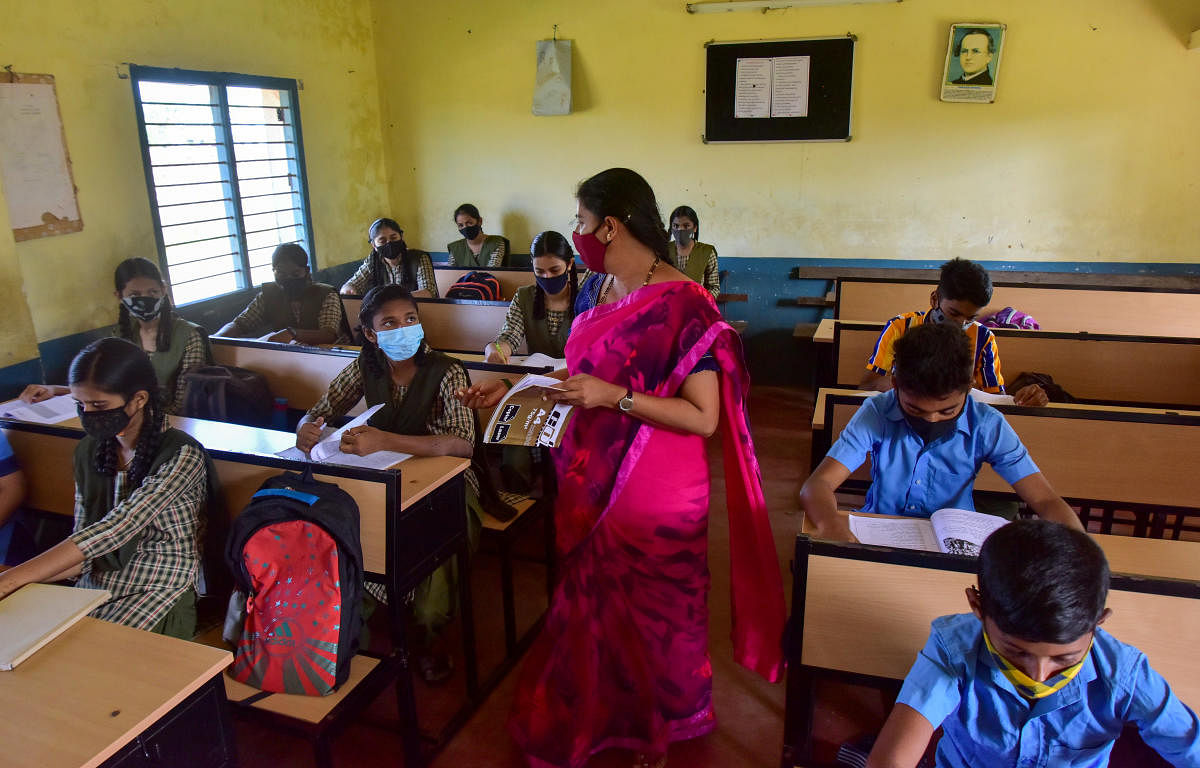
A child is not a statistic, roll number or a brick in the wall. Every child has a unique way to process life and learning and to impose a one-size-fits-all teaching methodology is insensitive and short-sighted. Research has repeatedly proven that every individual has a certain learning style that is informed by their upbringing, background, social and personal experiences. As educators, if we cannot address every nuance in a child’s personality, we can at least make an effort to understand the basics of educational psychology to help children learn better.
Labelling and castigating children for ‘acting out,’ ‘being difficult,’ calling them ‘emotionally unstable’ and making a bad example out of them is not unusual in schools. The damage this does to the delicate psyche of the child is inestimable. Labels like ‘slow’, ‘disruptive’ and ‘inattentive’ can scar a child forever.
Educational psychology is an attempt to approach a child with empathy as well as with knowledge about their emotional, cognitive, social and behavioural needs. The challenges that children are facing today are unprecedented. The pandemic has disrupted their education, their social life and altered their perception of the world forever. At such a time, it is even more important to make space for their anxieties, fears and possible inability to focus single-mindedly on academics.
For over two years, the lives of our children have been limited to their computer or mobile screens. Many have lost loved ones to Covid-19 and countless others have battled the infection themselves or seen their parents go through financial and emotional challenges. When they return to school, they will have to deal with the anxiety of whether classrooms and schools are pandemic proof, whether they can play just like before with their peers etc. This is why educators need to be prepared to not just educate but to create safe spaces for children to share what is on their minds. Instructional processes will have to recognise individual differences in learning and this is where educational psychology will help.
All-round development
In a nutshell, educational psychology is not just about how children are behaving or faring in academics but is focused on all-around development as they transition from childhood to adolescence. It teaches educators to understand that learning is retained in different ways and that instructional methods must address the social, emotional, and cognitive particularities of the pupils. Broadly speaking, educators can benefit from a study of developmental, behavioural and cognitive psychology.
The idea is to have an empirical perspective rather than have fixed, theory-based ideas about how to teach. Multiple perspectives about what causes certain behaviours, how conditioning impacts cognition, how emotions shape motivations for learning can all help teachers cultivate empathy and a broader understanding of their students.
During the pandemic, even during virtual classes, I noticed how circle time, singing, dancing and creative projects helped students to channel their negative emotions in constructive ways. Conventional teaching modules do not often make time for such activities.
Active participants
As an educationist, I have been deeply influenced by Swiss psychologist and genetic epistemologist, Jean Piaget. His theory of cognitive development has fundamentally altered how we look at education because it was he who established with scientific evidence that children develop intellectually throughout the course of childhood and each stage is different from the other. It is hence critical that each stage of the child’s growth is approached in a way that is most suited to it. John Dewey also believed schools should be attentive to students rather than being fixated on subjects. He believed that children learn better when they are encouraged to be active participants rather than passive onlookers and when they have a hands-on experience rather than just rote learning.
Another influential name is that of philosopher Johann Herbart who is often called the father of educational psychology. His primary argument is that a student’s interest deeply influences how well information is retained. William James also made a major contribution to educational psychology with his 1899 work, ‘Talks to Teachers on Psychology.’ B F Skinner researched operant conditioning from behaviourist perspectives and his ideas about reinforcement and punishment continue to be widely prevalent in classrooms.
Educational psychology is a constantly evolving field and researchers are busy exploring how to empower students and educators so that together they can get past the factors that inhibit learning.
Every school would benefit from an educational psychologist and our training modules would do well to sensitise our teachers to the tenets of developmental, cognitive and behavioural psychology. Each student after all is a dormant miracle waiting for just the right gardener.
(The author is the CEO of an educational institution)
Watch the latest DH Videos here: